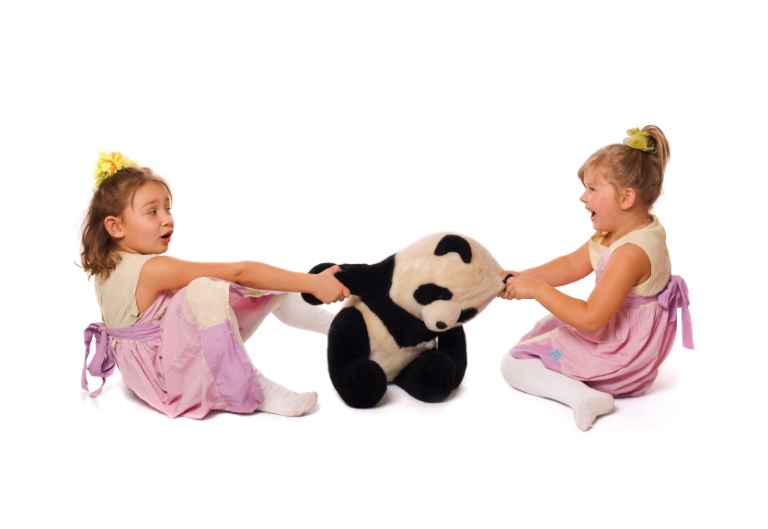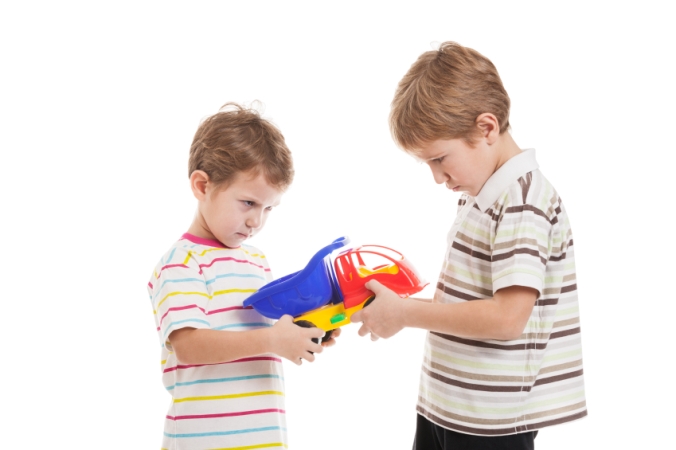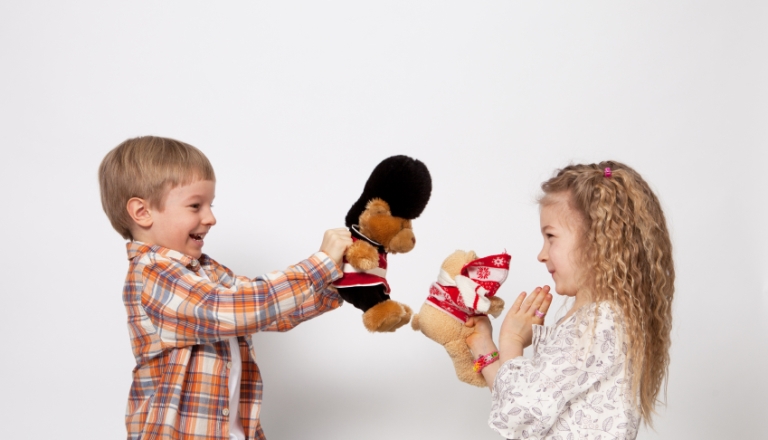When children are sent to early education programs, one of the key principles is teaching children how to play well together which often includes sharing. But the new movement teaching kids not to share is causing a stir amongst parents and educators alike. The new movement is encouraged for the good of the child, but many are hesitant about the perceived backlash of teaching kids not to share.
Dr Laura Markham, author of the just-released Peaceful Parent, Happy Siblings explains, “Forcing children to share doesn’t teach the lessons we want them to learn. Let’s agree that the goal is for our children to grow into generous people who are able to notice and respond to the needs of others.”
Kids learn to meet their own needs in an early educational environment which helps them to learn how to work and interact with their community when they are older. Dr Markham adds “We don’t want our kids to feel they should interrupt what they’re working on to ‘give’ something to another child just because the other child asks.”
She encourages to teach kids how to speak for themselves. When kids are forced to share it teaches them
- I get what I want if I cry loud enough, despite someone else playing with it.
- Parents are put in a leadership position where they decide who gets what when and often they are worn down by their kids nagging to initiate sharing
- Constant sibling rivalry
- Greed – this is what I need now and I deserve it.
- I need to play fast because I won’t have this item for long
- I won, but will lose again until I protest for my turn again.
What we are encouraged to do is teach our kids tools instead on how to handle a situation when another child has something they want.
“We do want our child to notice when another child would like a turn, and to ensure that child gets a turn. And when someone else has something that our child wants, we hope that she’ll be able to control her impulses so she doesn’t grab it, but instead will use her words to work out an arrangement so that she can use the object in the future.” Dr Markham explains.
Teaching kids to speak up and advocated for themselves and not to share their toys immediately allows them to play more freely, and often more alert about their environment where (you hope) they will notice their sibling or friend is eager to play with that item and hand it over willingly to the other child.
“The conventional approach of forced sharing undermines the ability of children to lose themselves in play, as well as undermining the sibling relationship by creating constant competition,” Dr. Markham explained. “Neither child gets to experience the generosity of having their fill and giving to the other.”
So what do we do as parents and educators?
Dr Markham says, ‘I encourage self-regulated turns, where the child decides how long to use the toy so she can fully enjoy it, and then can give it up to the other child with an open heart.
Often it can be teaching or facilitating your child as each situation presents itself.
- I can ask for what I want but I won’t necessarily get it when I want. I will have to be patient and wait until the other child hands it to me or is finished playing
- It’s ok to be upset if another child won’t share, and it doesn’t mean I won’t get to play with that toy
- I don’t get everything I want. When I’m upset, mum and dad will help me understand when I’m upset.
- I feel better after I cry.
- I can find something better to play with and be creative.
- I like how I feel when another child gives me the toy I want without having to cry for it.
- I don’t have to tantrum to get my parents to give me what I want or to negotiated on my behalf
- I can enjoy a toy as long as I want. I won’t be forced to give it to someone else. But it’s good manners to look out for others and give it to someone else to play with once I’m finished. I like the feeling of giving to someone else.
At the end of the day, as parents and educators, we want what’s best for our children and to teach them to be generous and giving to others, but not always at the cost of their own happiness.
What do you think of the new movement? Does it make some fair points? Should we stop our kids from sharing or do you think the whole movement is a load of tripe? We’d love to know what you think.












